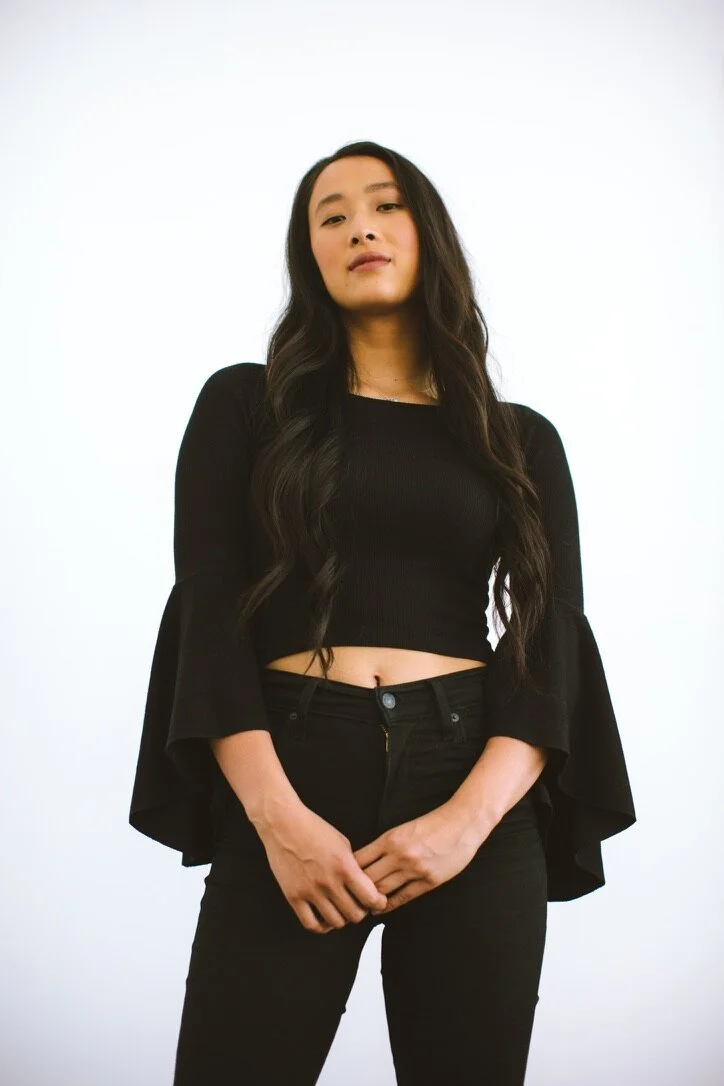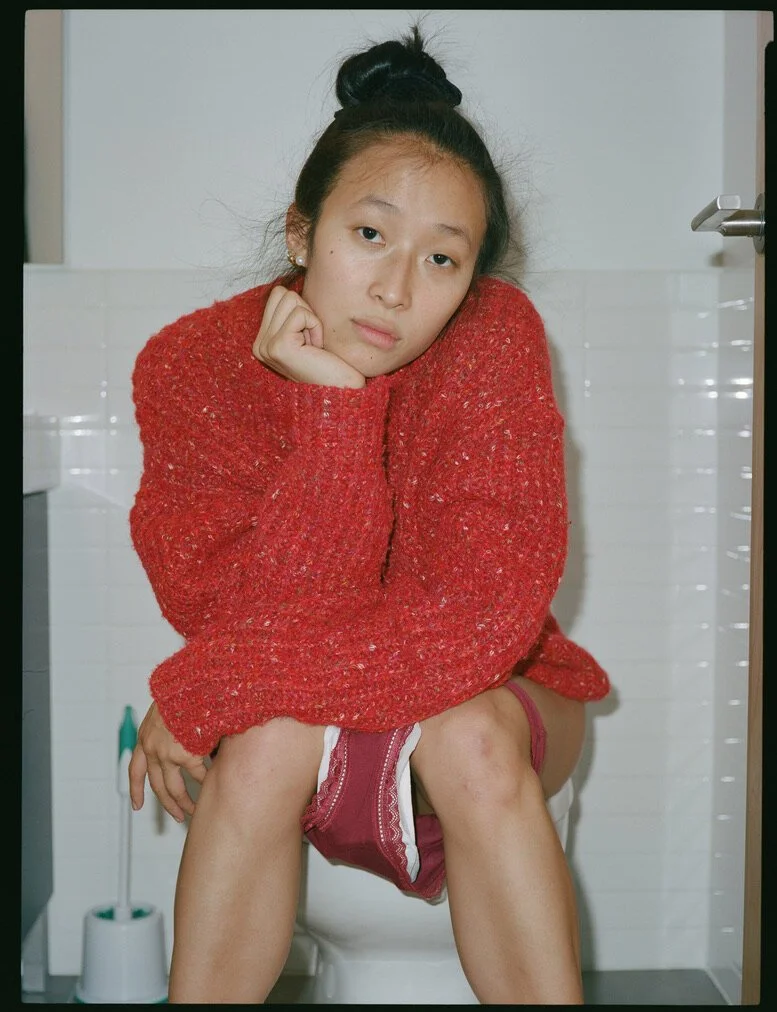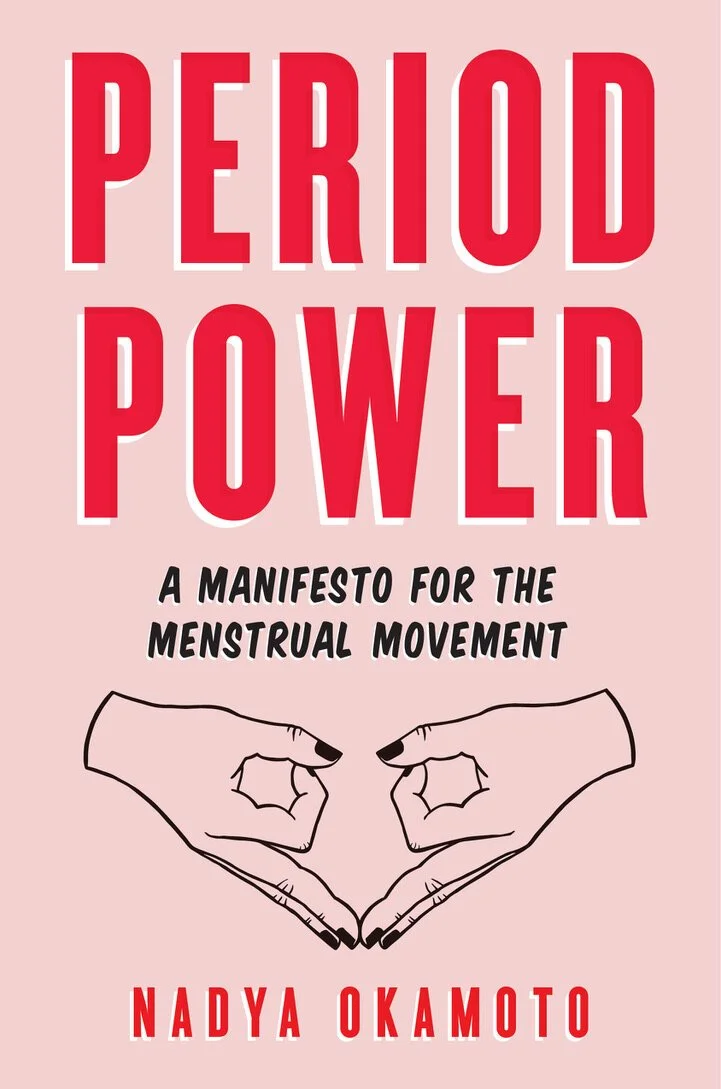Nadya Okamoto Is Changing the Way We Think About Periods
Photo by Mercedes Zapata
Photo by Mercedes Zapata
Meet Nadya Okamoto, one of the busiest young entrepreneurs we know. As the founder of Period.org, co-founder of August, and author of Period Power: A Manifesto for the Menstrual Movement, she is working to demystify and destigmatize periods across socioeconomic divides. Through Period.org, her global nonprofit that provides period products to anyone disproportionately affected by period poverty, Nadya advocates for broadened access to period products — whether that’s in prison, schools, or homeless shelters. The organization also advocates for crucial policy changes like eliminating the tampon tax in the United States (the sales tax that categorizes tampons as a luxury item rather than an essential good).
From this important non-profit work to founding a rising sustainable and inclusive period-care brand, August, which seeks to revolutionize the way we speak and think about periods, Nadya is expanding the menstruation conversation. Whether it’s through the deployment of gender-inclusive language or slashing outdated euphemisms like “aunt flow,” Nadya is pushing the idea that unrestricted access to period products and crucial information on menstruation is not a women’s issue but a human rights issue.
Did we mention she’s only 23?
We had the honor of sitting down with Nadya to learn more about her work and what makes her tick.
——
Xenia: Thanks for chatting with me today about period products, menstrual equity, and period positivity. I watched this video from the 2019 MAKERS Conference where you speak about building your business, August from the ground up. You had me at walking into a Jiffy Lube and saying “I just want to try out a pitch, can I speak at one of your staff meetings?” I value how much you figured out along the way and your sense of drive and focus around accessible period products. Can you tell me more about how August was born?
Nadya: I decided to start August with my co-founder in January 2020. I had been working in the period space on the nonprofit side for six years, and through my work in the advocacy space and in writing my book Period Power, I felt like the period industry had the responsibility and potential to catalyze a radical shift to destigmatize periods and improve the period experience. We started connecting on video calls with young people from around the country and building a community to collectively reimagine periods—and that’s how August was born.
“When talking about period positivity, it’s very important to understand that our activism must be inclusive — not all women menstruate and not all menstruators are women. Nonbinary, genderqueer, and trans folks can also experience menstruation.”
Xenia: What were some of the unexpected challenges you faced when developing August?
Nadya: Sustainability is built into the DNA of August. When we learned that 65% of the world's cotton is grown via forced labor and harmful farming methods—we went on a hunt to find a supplier that grows pesticide-free, chemical-free, fragrance-free, hypoallergenic, biodegradable and ethically sourced cotton. The research was grueling but so worth it! We are proud to say that every step of our supply chain is sourced ethically and we are constantly looking for ways to improve. You can learn more about the traceability of our products on our website.
Photo by Sophia Wilson
Photo by Sophia Wilson
Xenia: That’s wonderful. Consumer pressure to know what kind of ingredients go into period products has been a large impetus for the shift we’ve seen from brands in the last few years. And of course, sustainability, which blends into the period positivity movement. What does period positivity mean to you?
Nadya: When talking about period positivity, it’s very important to understand that our activism must be inclusive — not all women menstruate and not all menstruators are women. Nonbinary, genderqueer, and trans folks can also experience menstruation. When working to destigmatize menstruation, we must ensure that no one is left out, discriminated against, or marginalized. Menstruation is a biological function, it’s not just a “women’s issue." Also, periods are powerful! Periods make human life possible!
Xenia: I couldn’t agree more. Will you speak more about why it’s so important for non-menstruating folks to join this movement?
Nadya: We fundamentally need to get all of society (menstruator or not!) to acknowledge/act on that menstrual products are NECESSITIES—and everyone should have equitable access to them. Then I would hope that we would see period products provided for free in all schools, shelters, and prisons, and taking down the tampon tax globally. The tampon tax currently exists in 30 remaining US states. The inaccessibility of period products is further proof that our society views them as, more so, luxuries.
Xenia: You also mention how products like Rogaine and Viagra are considered essential goods. It’s due time to repeal the tampon tax in the US and in many states we’ve seen progress. What’s next for menstrual equity on a legislative level?
Nadya: Advancing policy is an ongoing process—a huge barrier is the fact that many of our legislators are cis men who are uncomfortable talking about periods. I believe that with policy, we should work to 1) eradicate the tampon tax; 2) fight for freely accessible period products in schools, shelters, prisons, and other establishments where there are restrooms used by people who menstruate.
Xenia: Yes! This leads me to my next thought. Something I’ve considered a lot about when it comes to period products is the disparity gap. We know that sustainable period products are better for the environment (and health) but there’s the invisible barrier of affordability. I see August does a lot of work with menstrual equity; can you speak to this work and how to close this gap?
Nadya: I think that a challenge with more sustainable products is that they often come at a premium price. I started my work in the period advocacy space—wanting to fight for period products to be more accessible. An unfortunate reality with any company is that we need to make sure we cover the costs of being able to afford the best organic cotton and ensure that we have an ethical supply chain from start to finish as well. If it were up to me, period products would be free for everyone. But in the meantime, while the movement continues to fight for that, I’m really excited to be able to bring more sustainable versions of these period products into the market, with a hyper-inclusive and community-centered brand. Furthermore, 10% of the August profits are donated to our nonprofit partners at the end of every quarter to support their work in ending period poverty. More about our impact program can be found on our website, too!
Xenia: Can we chat about stigma, too? For so long, how we speak about periods involved awful euphemisms that beat around the bush and fail to address the experience. I really value how August states “euphemism-free” on its site. How has it been received to speak point-blankly about periods? Have you noticed any changes over the years in how the general public receives this information?
Nadya: The real change in breaking the stigma surrounding menstruation starts with talking freely about periods as the natural and powerful thing that they are! This means actually using the word “period” and “menstruation” instead of euphemisms like “shark week,” “aunt flow,” etc… Periods are powerful—yet society teaches us to feel ashamed and silences us when talking about menstruation. We should be conscious of this and stop this mentality! We need to talk about periods openly and not be silenced and ashamed of them. The patriarchal society we live in created and perpetuated this stigma around periods—making it taboo, dirty, and even shameful to talk about. The fact that people are uncomfortable talking about periods is a large component of why there isn’t substantial research being done.
Xenia: Why the name August?
Nadya: The word “August” means dignified, and our company August is a lifestyle brand working to reimagine periods to be dignified! The period product industry sold us one narrative that has kept us silent and ashamed of our bodies, and we’re here to put an end to that.
Xenia: What consumes your thoughts as of late in the world of menstrual equity?
Nadya: Why are we so afraid to show menstrual blood? Why do we treat it as this disgusting thing unlike how we treat blood that shows up in other forms of media? I’ve recently posted a couple of videos showing menstrual blood on TikTok and it blew up into this viral controversy—and I really don’t understand it. Periods are natural and shouldn’t cause people to feel so much disgust.
Xenia: Thank you so much for chatting with me today, is there anything else you’d like readers to know?
Nadya: I hope that you continue this conversation — please come join us at August! Join us on social media and join our community, the Inner Cycle!



